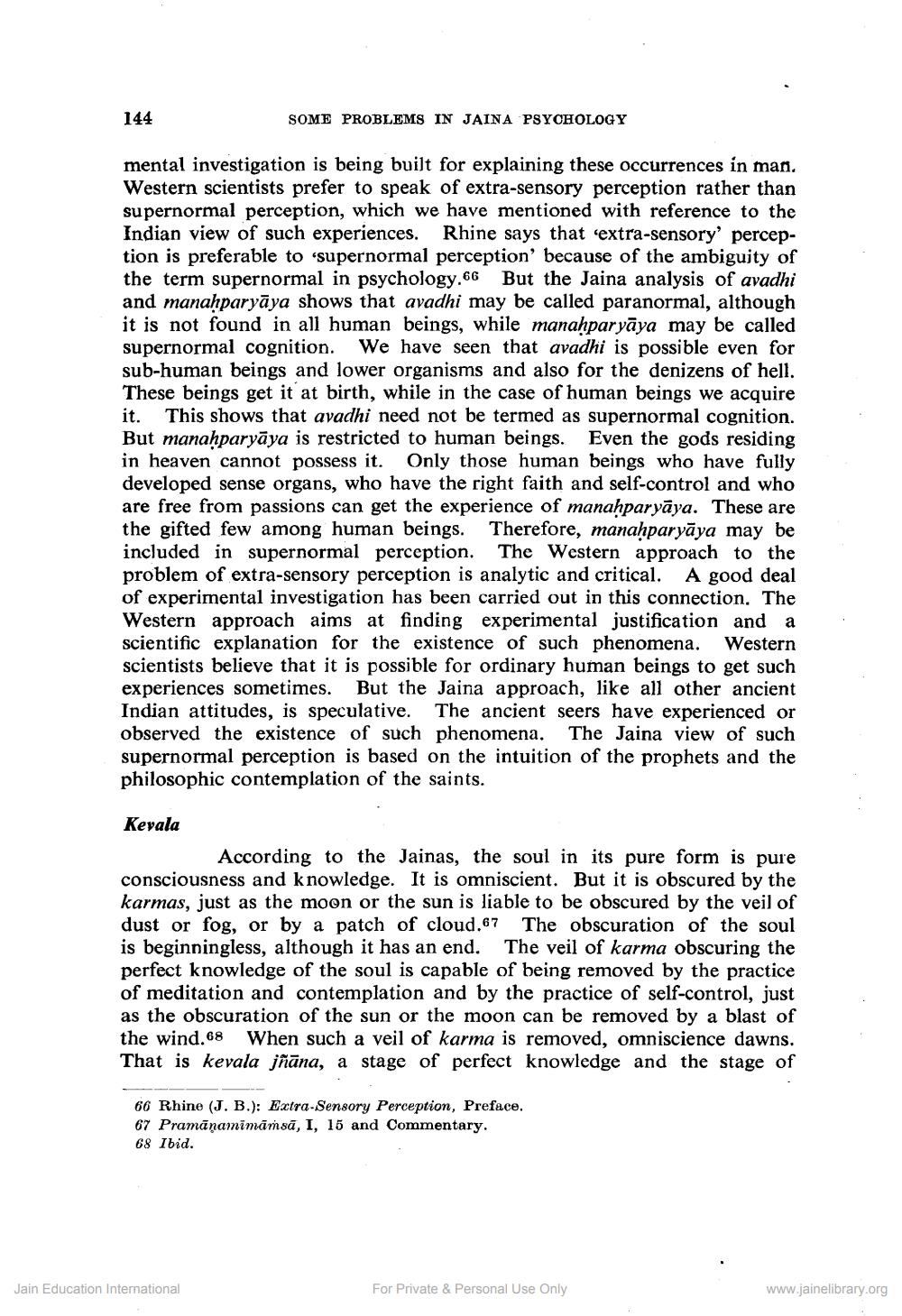________________
144
SOME PROBLEMS IN JAINA PSYCHOLOGY
mental investigation is being built for explaining these occurrences in man. Western scientists prefer to speak of extra-sensory perception rather than supernormal perception, which we have mentioned with reference to the Indian view of such experiences. Rhine says that 'extra-sensory' perception is preferable to supernormal perception because of the ambiguity of the term supernormal in psychology,66 But the Jaina analysis of avadhi and manahparyāya shows that avadhi may be called paranormal, although it is not found in all human beings, while manahparyāya may be called supernormal cognition. We have seen that avadhi is possible even for sub-human beings and lower organisms and also for the denizens of hell. These beings get it at birth, while in the case of human beings we acquire it. This shows that avadhi need not be termed as supernormal cognition. But manahparyāya is restricted to human beings. Even the gods residing in heaven cannot possess it. Only those human beings who have fully developed sense organs, who have the right faith and self-control and who are free from passions can get the experience of manahparyāya. These are the gifted few among human beings. Therefore, manahparyāya may be included in supernormal perception. The Western approach to the problem of extra-sensory perception is analytic and critical. A good deal of experimental investigation has been carried out in this connection. The Western approach aims at finding experimental justification and a scientific explanation for the existence of such phenomena. Western scientists believe that it is possible for ordinary human beings to get such experiences sometimes. But the Jaina approach, like all other ancient Indian attitudes, is speculative. The ancient seers have experienced or observed the existence of such phenomena. The Jaina view of such supernormal perception is based on the intuition of the prophets and the philosophic contemplation of the saints.
Kevala
According to the Jainas, the soul in its pure form is pure consciousness and knowledge. It is omniscient. But it is obscured by the karmas, just as the moon or the sun is liable to be obscured by the veil of dust or fog, or by a patch of cloud.67 The obscuration of the soul is beginningless, although it has an end. The veil of karma obscuring the perfect knowledge of the soul is capable of being removed by the practice of meditation and contemplation and by the practice of self-control, just as the obscuration of the sun or the moon can be removed by a blast of the wind.68 When such a veil of karma is removed, omniscience dawns. That is kevala jñāna, a stage of perfect knowledge and the stage of
66 Rhine (J. B.): Extra-Sensory Perception, Preface. 67 Pramānamīmāṁsā, I, 15 and Commentary. 68 Ibid.
Jain Education International
For Private & Personal Use Only
www.jainelibrary.org




